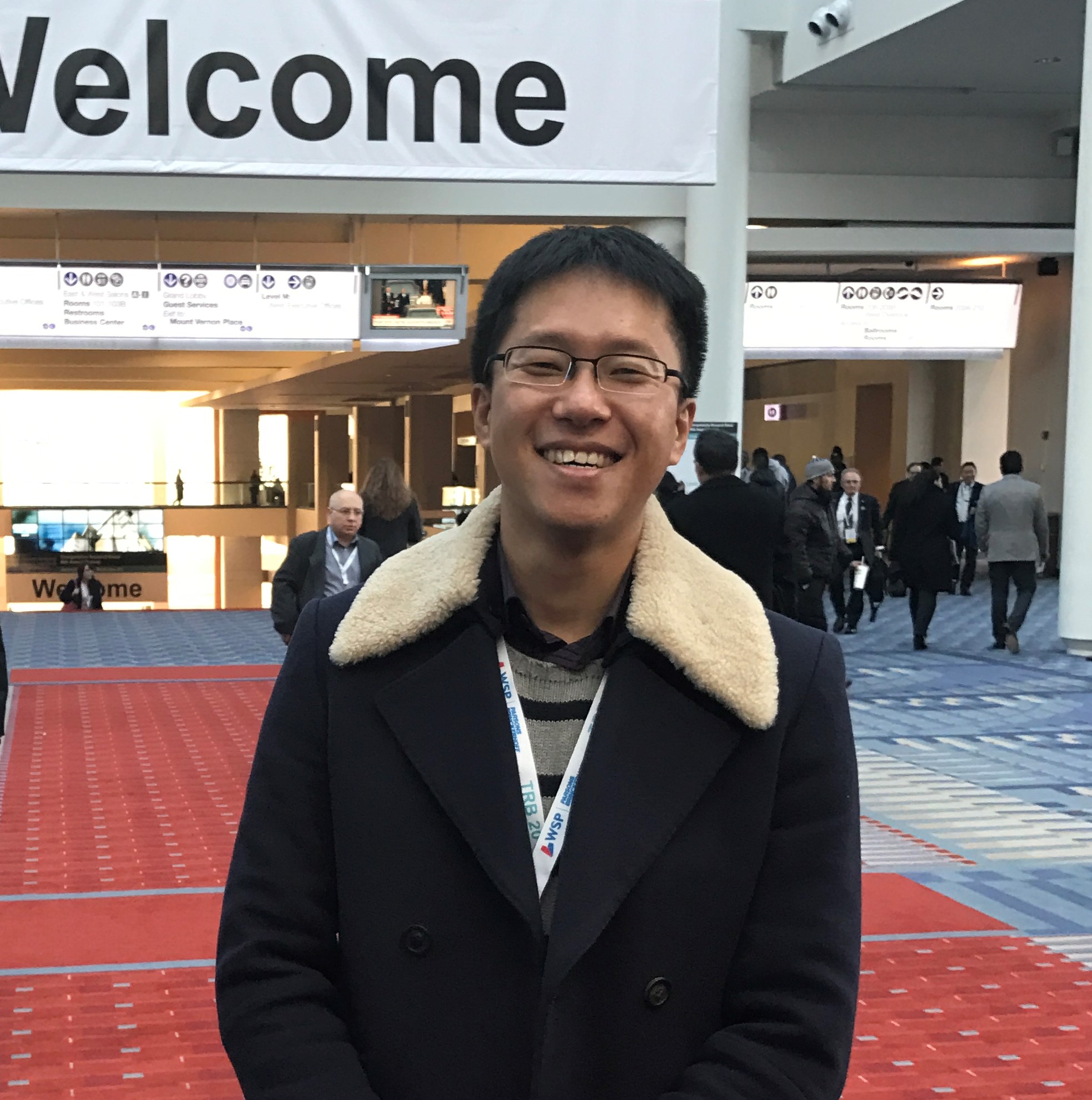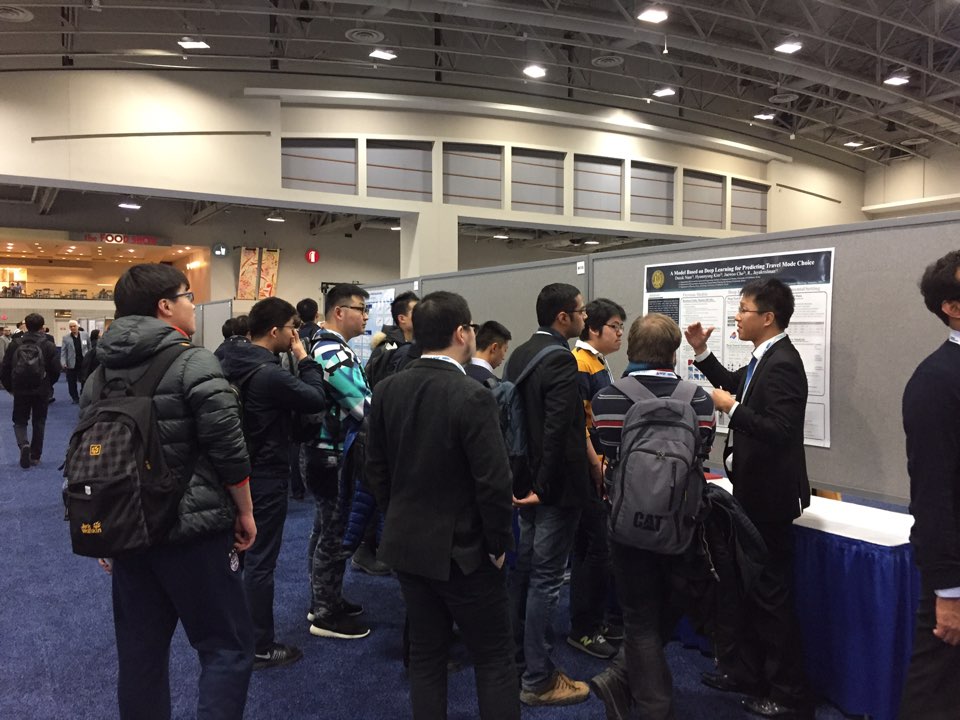News | UCI PhD Candidate Daisik Nam Examines Smart Urban Mobility
Stop the VideoNews

by By: Adylbek Abdykalikov, USC, IPPAM 2020
Fifth year transportation PhD student at University of California, Irvine (UCI) is Daisik Nam is actively contributing the field of optimization and maximization of efficiency of transportation systems.
Born in the densely populated city Seoul, Korea, Nam remembers public transportation as an integral part of his life from a young age. After high school, he decided to pursue a bachelor’s degree in Transportation Engineering and a master’s degree in City Planning, both at Seoul National University. With a solid educational background, he joined Kakao Corp., a Korean internet company that provides platform-based web/app services, as a mobility platform manager. There he designed transportation information services such as intermodal route planners, real-time road traffic and bus arrival information, and route information on public transportation. “I got hands-on experience analyzing user behavior data from more than four million users monthly,” he said. “That was when I realized the importance of big data and its capabilities in designing the next generation of mobility services. I found that different users have different preferences for travel information.”

Motivated by that experience, Nam looked for a PhD program to study smart urban mobility platforms in greater depth. He is now nearing completion of a PhD at UCI under the supervision of Professor R. Jayakrishnan. Nam’s primary research are digital map applications for smart urban mobility, dynamic pricing/incentive schemes for fair and efficient allocation of transportation, multimodal shared mobility, deep learning, and spatial analysis & spatial optimization.
“I am designing a mobility platform with both efficiency and equity in mind. As we all know, maximizing the efficiency of transportation systems in the real world brings about unfair allocations of supply, which induces ‘envy’ in individual travelers. To solve this problem, we introduce the idea of envy-free allocation, also known as “fair cake cutting problem” in economic theory, in the optimization of a transportation system, while minimizing user envy,” he explained. “Under our proposed pricing/incentive scheme, faster route users pay for their more attractive travel options, and that money is distributed to compensate users traveling on longer, less-attractive routes.”

As an additional activity and a voluntary project, Nam is contributing in yet another way. Along with four of his PhD student colleagues at UCI, Nam develops Python-based open source programming lecture notebooks for transportation algorithms. The aim of this work, he shared, is to provide students and transportation professionals with a better understanding of transportation theories.
As advice to those who are interested in becoming a transportation researcher or professional, Nam suggests trying to take classes from outside of your immediate discipline, which means “engineers taking planning/economics classes and vice versa.” Also, he recommends participating in conferences/seminars such as those offered by METRANS, Transportation Research Board, INFORMS, and ITS as a great way to get exposed to current research and practitioner trends. “That will help you formulate your own research problems and define your interests,” says Nam.
Nam believes that the transportation industry in the next decade will require transportation professionals to be more creative, as more and more mobility services will be possible with connected and autonomous vehicles, and noted that “transportation professionals of the future will need to have more breadth in their knowledge and understanding of the field, in order to be more effective decision makers.”
About the Author:
Adylbek Abdykalikov is a graduate student of International Public Policy and Management Program at USC Price. He has working experience in various positions at the Ministries of Transport and Communication and Investment and Development of Kazakhstan and was in charge of Transportation and Civil Aviation policy development and implementation, and serves as lead student event coordinator for METRANS and PSR.
News Archive
- December (1)
- November (6)
- October (4)
- September (2)
- August (3)
- July (4)
- June (3)
- May (7)
- April (8)
- March (11)
- February (8)
- January (7)
- December (7)
- November (8)
- October (11)
- September (11)
- August (4)
- July (10)
- June (9)
- May (2)
- April (12)
- March (8)
- February (7)
- January (11)
- December (11)
- November (5)
- October (16)
- September (7)
- August (5)
- July (13)
- June (5)
- May (5)
- April (7)
- March (5)
- February (3)
- January (4)
- December (4)
- November (5)
- October (5)
- September (4)
- August (4)
- July (6)
- June (8)
- May (4)
- April (6)
- March (6)
- February (7)
- January (7)
- December (8)
- November (8)
- October (8)
- September (15)
- August (5)
- July (6)
- June (7)
- May (5)
- April (8)
- March (7)
- February (10)
- January (12)















